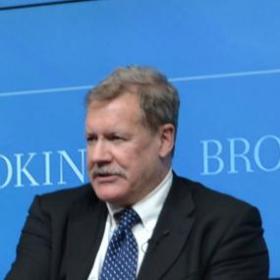
Rights and Responsibilities in Cyberspace: Balancing the Need for Security and Liberty
The EastWest Institute and the World Federation of Scientists released Rights and Responsibilities in Cyberspace: Balancing the Need for Security and Liberty, which offers three perspectives on the delicate balance between individual rights and the urgency of reaching agreements on new international cyber laws. The publication includes essays by top cybersecurity experts, calling for cooperative dialogue between governments and the private sector around the world to both ensure liberty and protect against the threats of cyber warfare and cyber war.
Jody Westby, CEO of Global Cyber Risk LLC., stresses the need for international rule of law. "Governments have an obligation to help protect the Internet and systems that support their economies, enrich the lives of their citizens and support government and military operations,” she writes. “They also have an obligation to assist in tracking and tracing cyber crime activities."
Given the capabilities and complexities of bot-nets and bot-herders, a central issue in the publication is how to trace the source of a cyber attack.
“In the netwar paradigm, any machine can be the controller,” says William Barletta, Director of the United States Particle Accelerator School, whose essay examines the 2007 cyber attack on Estonia. "Above all, they must coordinate across borders to clarify norms and expectations in cyberspace and eliminate the threat of a crippling cyber war."
Henning Wegener, a former Ambassador of Germany, agrees with the need for an international legal framework, but stresses the importance of safeguarding freedom of expression and access to information. He argues that cyber repression is a human rights issue. “Massive cyber repression can alter the collective state of mind of a nation,” he writes, referring to Internet censorship. “A first step could be to reach in these bodies a broader international understanding of the development and technical underpinning of current Internet filtering, and to create an international monitoring mechanism.”

